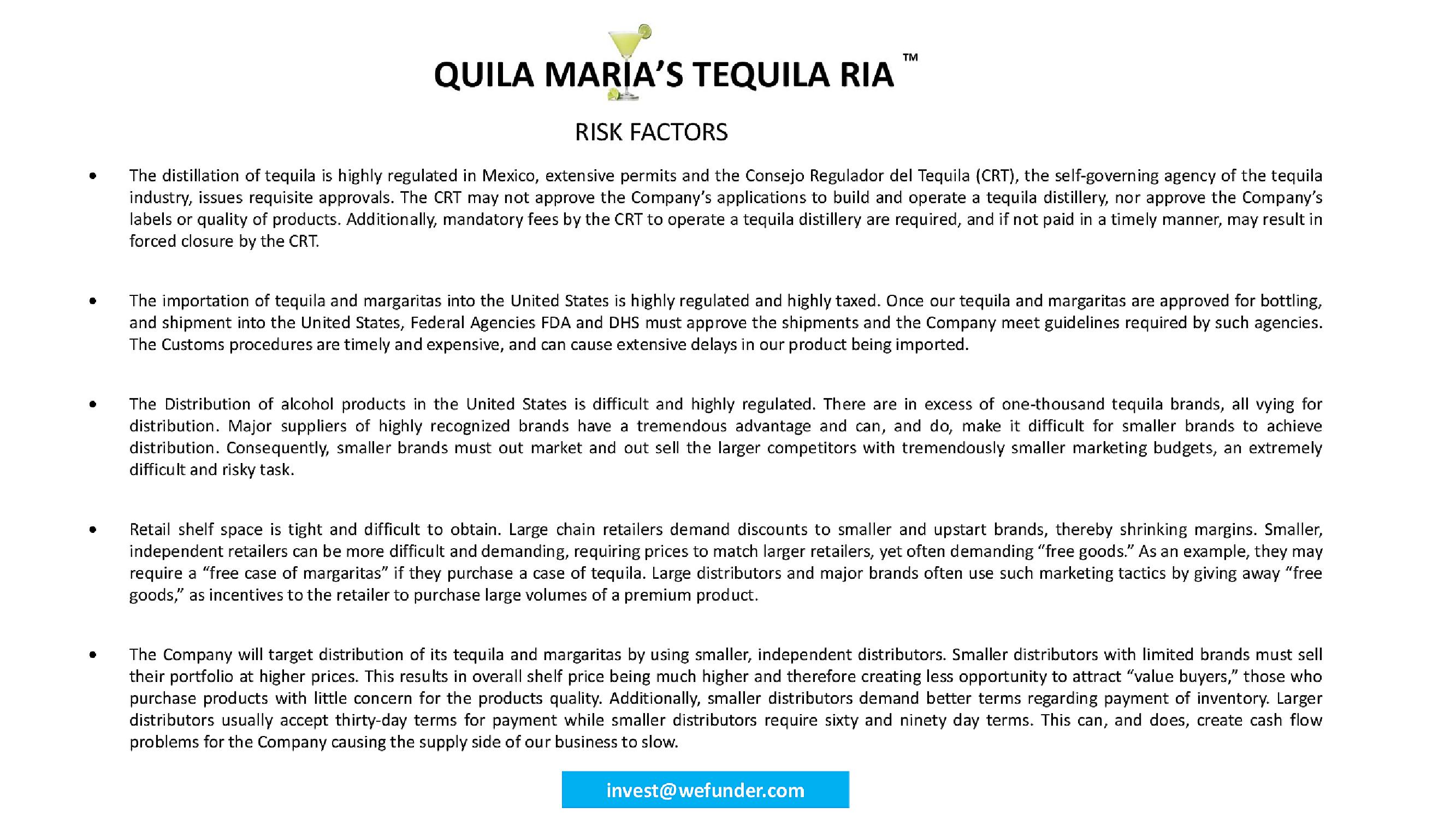Qila Marias Tequila Ria Crowdfund Pitch Deck
TM
QUILA MARIA'S TEQUILA RIA
RISK FACTORS
The distillation of tequila is highly regulated in Mexico, extensive permits and the Consejo Regulador del Tequila (CRT), the self-governing agency of the tequila
industry, issues requisite approvals. The CRT may not approve the Company's applications to build and operate a tequila distillery, nor approve the Company's
labels or quality of products. Additionally, mandatory fees by the CRT to operate a tequila distillery are required, and if not paid in a timely manner, may result in
forced closure by the CRT.
The importation of tequila and margaritas into the United States is highly regulated and highly taxed. Once our tequila and margaritas are approved for bottling,
and shipment into the United States, Federal Agencies FDA and DHS must approve the shipments and the Company meet guidelines required by such agencies.
The Customs procedures are timely and expensive, and can cause extensive delays in our product being imported.
The Distribution of alcohol products in the United States is difficult and highly regulated. There are in excess of one-thousand tequila brands, all vying for
distribution. Major suppliers of highly recognized brands have a tremendous advantage and can, and do, make it difficult for smaller brands to achieve
distribution. Consequently, smaller brands must out market and out sell the larger competitors with tremendously smaller marketing budgets, an extremely
difficult and risky task.
Retail shelf space is tight and difficult to obtain. Large chain retailers demand discounts to smaller and upstart brands, thereby shrinking margins. Smaller,
independent retailers can be more difficult and demanding, requiring prices to match larger retailers, yet often demanding "free goods." As an example, they may
require a "free case of margaritas" if they purchase a case of tequila. Large distributors and major brands often use such marketing tactics by giving away "free
goods," as incentives to the retailer to purchase large volumes of a premium product.
The Company will target distribution of its tequila and margaritas by using smaller, independent distributors. Smaller distributors with limited brands must sell
their portfolio at higher prices. This results in overall shelf price being much higher and therefore creating less opportunity to attract "value buyers," those who
purchase products with little concern for the products quality. Additionally, smaller distributors demand better terms regarding payment of inventory. Larger
distributors usually accept thirty-day terms for payment while smaller distributors require sixty and ninety day terms. This can, and does, create cash flow
problems for the Company causing the supply side of our business to slow.
[email protected]View entire presentation